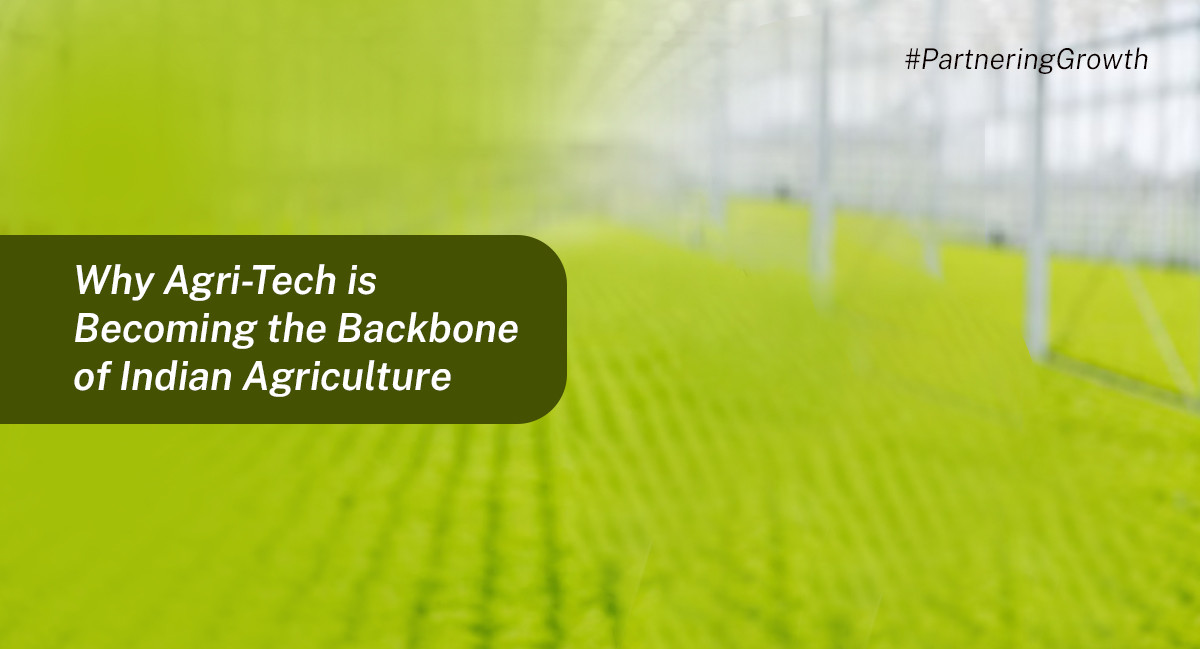


Agriculture has always been the lifeline of India, employing nearly half of the country’s workforce and feeding over a billion people. But in recent years, challenges such as climate change, shrinking landholdings, water scarcity, and low productivity have made it clear that traditional methods alone are no longer enough. This is where agri-tech is stepping in, not as an add-on, but as the backbone of the sector’s future.
What Is Agri-Tech?
Agri-tech refers to the use of technology, data, and innovation to improve farming processes. It covers everything from precision farming, smart irrigation, and drone-based crop monitoring to digital marketplaces, supply chain solutions, and fintech for farmers. In simple terms, it is the blend of agriculture and technology to make farming more efficient, sustainable, and profitable.
Why Agri-Tech Matters for India
India’s agricultural sector faces unique challenges:
• Low productivity compared to global standards.
• Post-harvest losses due to gaps in cold storage and logistics.
• Unpredictable weather patterns impacting crop yields.
• Limited access to finance and real-time market information.
Agri-tech directly addresses these pain points by providing data-driven solutions, better infrastructure, and market linkages.
Key Areas Where Agri-Tech Is Driving Change
1. Precision Farming:
Through soil sensors, satellite imagery, and AI-driven tools, farmers can now optimise water, fertilizer, and pesticide use. This not only improves yields but also reduces environmental impact.
2. Supply Chain and Market Access:
Agri-tech start-ups are connecting farmers directly with buyers through digital marketplaces, reducing middlemen and ensuring farmers get fairer prices for their produce.
3. Financial Inclusion:
With the rise of fintech in agriculture, farmers can access easy credit, crop insurance, and digital payments. This helps them manage risks and invest in better practices.
4. Smart Irrigation:
IoT-enabled systems are helping farmers monitor soil moisture and water needs, promoting efficient water use in drought-prone areas.
5. Post-Harvest Management:
Cold storage, packaging, and logistics innovations are reducing food wastage- a critical issue in India where nearly 30-40% of produce gets lost before reaching consumers.
The Role of Start-ups and Government Support
India has seen a surge of agri-tech start-ups in the last decade. These companies are bringing innovative business models, from subscription-based advisory services to drone-enabled crop monitoring. Venture capital funding has also boosted this sector, signalling investor confidence in its long-term potential.
Additionally, initiatives like Digital Agriculture Mission, e-NAM (National Agriculture Market), and subsidies for farm mechanisation are creating a strong policy environment for agri-tech adoption. Combined with private innovation, this ecosystem is shaping a more resilient future for Indian farming.
The Road Ahead
The future of Indian agriculture lies in scaling agri-tech solutions beyond urban and progressive farming clusters. The real challenge and opportunity will be reaching small and marginal farmers, who form the majority of India’s farming community. Partnerships between start-ups, corporates, and the government will play a vital role in making this happen.